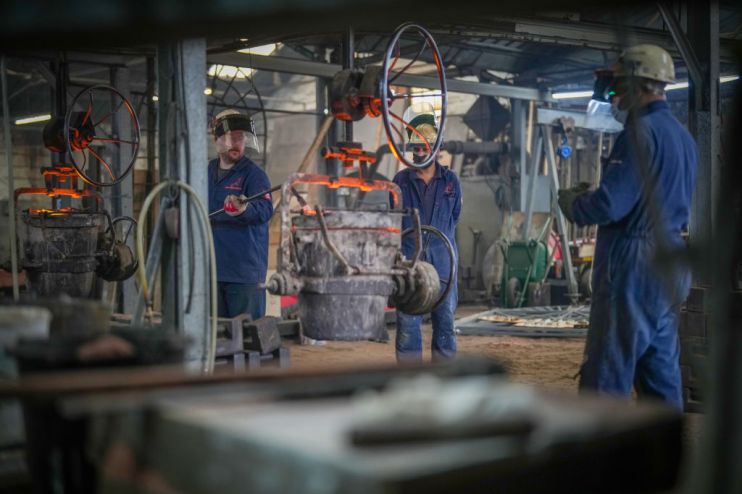Inflation shock sends chill through British factories, but hiring holds up

A softening in the UK economy caused by surging inflation has clamped down on UK factories, a closely watched survey published today reveals.
A net balance of six per cent of British manufacturers posted new order growth over the last three months, down sharply from 25 per cent in the three months to June, according to the Confederation of British Industry (CBI).
Over the coming quarter, manufacturers expect activity to slump to levels not seen since the country was in the teeth of tough Covid-19 restrictions.
A net balance of six per cent of firms think output will expand, the weakest reading since January 2021.
Inflation hit 9.4 per cent last month, the highest level since 1982, curbing business and household activity. Higher interest rates have also cooled demand.
Anna Leach, CBI deputy chief economist, said: “The manufacturing sector has been an economic bright spot in recent months, but output and orders have softened amid ongoing cost pressures, supply challenges and a generalised weakening in economic conditions both in the UK and globally.”
Despite the souring trading environment, employment in the manufacturing sector remained strong last quarter.
Staff numbers jumped 18 per cent, marginally lower than the previous quarter, and are expected to progress at a similar rate in the coming months.
The CBI’s figures reflect a similar trend in the broader labour market. Unemployment has dropped to a historic low of 3.8 per cent in the UK despite fears the country may tip into recession soon.
Scorching inflation has so far only marginally impacted consumer spending, giving firms confidence to keep hiring.
However, the cost of living is forecast to top 12 per cent in October when another hike to the energy price cap lands. Economists think households could react to higher bills by slashing spending, which may weigh on demand for workers.